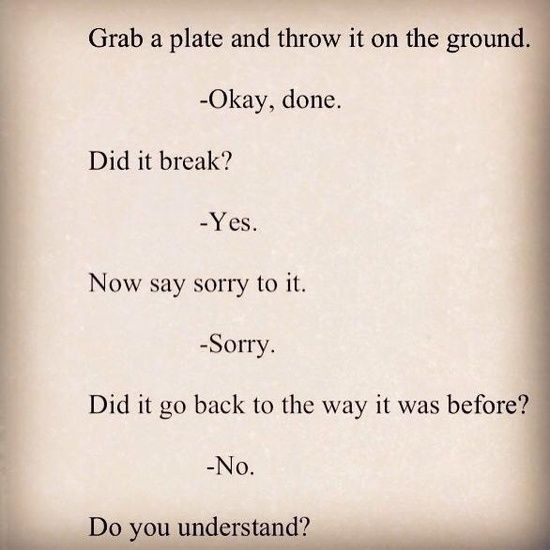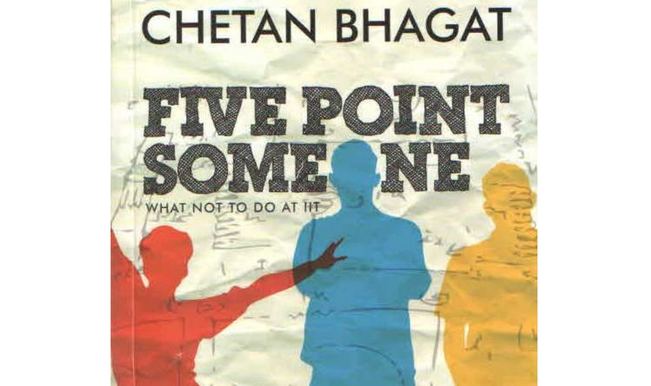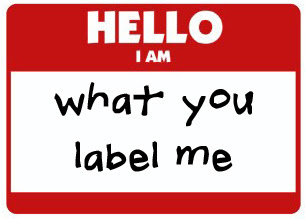
***
"I Am Sorry"
Such a meaningless phrase
After being thrown around
In many insincere ways.
"I Am Sorry"
Such a powerful phrase
With the potential to heal
And set the heart ablaze.
***
People always say, “Better late
than never.” But at what point is it too late?
Is six years later too late?
***
Where: Gym class. When: Sixth
grade. My classmates and I were running across the gym, and genius me didn’t see a girl come up
behind me. I accidentally cut her off by crashing into her,
and, startled, she fell to the floor.
BAM!!
In the moment, I hurriedly
apologized because I was too shocked to say anything else. Then the girl
brushed herself off and got back up, and I thought she was fine.
The next day, I found out she was
in the hospital and had a broken wrist…because of me.
I felt enough guilt that it should
have compelled me to properly apologize to her. However, I never got the chance
to. I was going to leave a “Sorry” card for her in her locker, but she was out
of school for a week. So I assured myself that I had done what I could and let
it go.
When the girl came back, I couldn’t
get myself to apologize to her in person because I felt so bad for what I had
done. Lucky for me, she gave me the chance to apologize. One day during gym, she
and her friend approached me. Her friend sassily asked me, “Aren’t you ever
going to apologize for what you did?!”
I
stuttered, “I did…okay…I’m sorry?” Sometimes, when people confront you, you
just forget how to talk. Here was my perfect chance to give her a genuine
apology, and I had blown it.
The End.
***
The End.
***
~Six Years Later~
Now it’s senior year of high
school, and that girl’s wrist has long healed. On the other hand, the guilt
inside me for my weak apology had not yet vanished.
Suddenly, some new energy flowed through me. I decided it was time to
make a change in my life. It’s time to apologize to people, and it’s time to
make things right. If I didn’t do that now, then I would have to live with that
guilt forever. It was now or never.
***
Two months ago, I was walking through the hallway,
and that girl happened to be right in front of me.
Wow, this was just perfectly set up for me. I should just apologize right now, right?
Wow, this was just perfectly set up for me. I should just apologize right now, right?
Okay, well, she’s on her phone. I
shouldn’t distract her.
Well, so what if she’s on her
phone? I can interrupt her for a minute or two.
The devil and angel in my mind
continued to argue until I abruptly shut them up. No more waiting for miracles
to happen; now it’s time to make them happen. I boldly took a step forward to
the girl that I hadn’t spoken to in six years, to the girl that had suffered
because of me, to the girl that probably hated me more than I can imagine.
Well, turns out that assumptions
can be wrong.
Me: I’m sorry for crashing into you…and
breaking your wrist…and never apologizing. <I stuttered a little; she could
probably tell I was nervous.>
Her: NO! Oh my gosh, do you know
how much I beat myself up for that?! <I thought she meant she was still mad
at me, but to my surprise, she was actually mad at herself.>
Me: That still bothers you?!
Her: I was such a bitc* to you!
<She was now walking backwards to talk to me since I was awkwardly behind
her>
Me: No, it wasn’t your fault! It
was my fault! I only apologized to you that day in sixth grade, and then after
that you were out of school, but I wanted to make you a card!
Her: It wasn’t even your fault! I
was such a bitc* and rude to you after that!
Me: No, you didn’t do anything
wrong!
Her: Yeah, I always beat myself up
for that. I remember you were always so sweet! <Aww, and I thought she hated
me all along!>
Me: I am sorry. I should’ve
apologized sooner!
Her: No! I won’t even accept your
apology! <Pausing for a few seconds> I’m
sorry.
Then we continued to argue for a
minute over how we were both sorry and how it wasn’t the other person’s fault. Eventually,
she had to leave, so we bid each other a good weekend and continued on our ways.
As soon as I left, tears of happiness came out of my eyes. I felt such relief from apologizing and from being forgiven.
If I had never apologized to her, then I would have lived the rest of my life with a little regret inside of me. If I had never apologized, I would think she still hates me. If I had never apologized, she would never have a chance to forgive me--or to forgive herself.
As soon as I left, tears of happiness came out of my eyes. I felt such relief from apologizing and from being forgiven.
If I had never apologized to her, then I would have lived the rest of my life with a little regret inside of me. If I had never apologized, I would think she still hates me. If I had never apologized, she would never have a chance to forgive me--or to forgive herself.
If you never do, you'll never know. If you feel like there's someone you need to apologize to, then go ahead and do it. It doesn't matter how long ago the mistake actually occurred. Just do it!
Until you apologize, the hurt feelings may last forever. And if the other person doesn't forgive you, then hey, at least you did your part.
Until you apologize, the hurt feelings may last forever. And if the other person doesn't forgive you, then hey, at least you did your part.
Here's the catch: those aren't reasons. Those are excuses. So here are reasons you should apologize when you know you've done something wrong:
-It can restore a relationship.
-The person who receives the apology gets closure.
-The person apologizing no longer lives in guilt and shame.
-Once we apologize and take the blame for an action, we are less likely to repeat that action.
Apologizing is sacrificing your own ego to admit your fault.
So the power of apology is undeniable--when you've actually done something wrong. A fake or forced apology just kills the whole point of saying sorry.
Apologize when you messed up or when you hurt someone or when you know you can do better next time. Don't apologize for being honest or for being yourself.
So as an answer to Justin Bieber's "Is it too late now to say sorry?"...No, it really never is.











